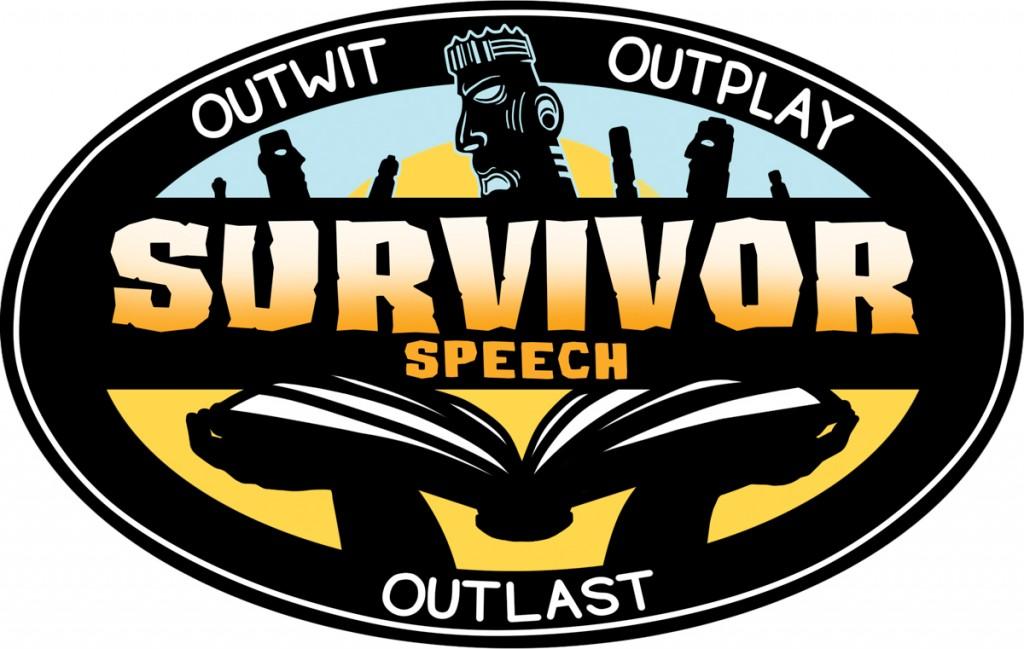By Brigitte Zumaya
Opinion/Sports Editor

A group of students are shooting video in the Commons Courtyard, speaking loudly enough to drown out the fountain. This video is not destined to become one of YouTube’s Top 10. Instead, it is coursework for what has become known as Survivor class.
Anne Fleischer, an adjunct professor of speech communication at Brookhaven College, has rebranded her speech class as a hybrid course. The theme is based on the reality TV series “Survivor.” “Over the years I noticed that college students hate group work,” Fleischer said. She has set up her students in groups of five, which are called tribes.
These tribes will work together for the whole semester. Each week, tribes are given a challenge to accomplish, whether it is completing a speech video, a writing assignment, or an activity in or outside of class. “I figured by making people work together all semester long, they are going to have to pass that polite stage,” Fleischer said. “It is like the ‘Real World.’ This is what happens when people stop being polite and start to get real.”
To be a good team player is to be flexible, empathetic, respectful, dedicated and able. When working in groups, there are teammates who are slackers and let everyone else do the work, Fleischer said. “I always give people the benefit of the doubt,” Brookhaven student Randy Wilfong said.
The tribes make a contract laying out each person’s responsibilities and the consequences if they do not invest effort into the team. Each team will name its tribe, create a logo, assign duties for members and sign a contract agreed upon by the tribe.
If a teammate is not cooperating, then tribe members can vote that person out. That person will do all the assignments (which are called challenges) by themselves the rest of the semester. Before kicking someone out, the tribe must set up a meeting with Fleischer so she can mediate the meeting as they do in the show. “Yes, I’m Jeff Probst,” Fleischer said. At the end of the meeting, the tribe will decide whether they should kick that person off the team.
The challenges for each week are posted on eCampus every Tuesday. Students then meet up with the professor in class and learn to apply the concepts from the challenge. Tribal meetings are held on Thursdays. The students meet with their tribe members on or off campus. “My hypothesis is that they’re going to produce better work outside of the classroom,” Fleischer said.
If they complete the challenge with their tribe members, students then get a completion grade. At the end of every challenge, each tribe has access to one another’s finished challenges and ranks them. “Imagine how helpful it will be if, after you turn in an assignment you were able to look at everybody else’s assignments, and see what they did well and then say, ‘Oh, I like this one the best,’” Fleischer said. “Not only are they doing the work, but they are also evaluating at the end, which is a higher level of learning.”
“I think competition is natural in people, and because everyone has multiple chances to win a challenge and it’s not over until the very end of the semester, it is always a fair game,” Fleischer said. Brookhaven student Kenny Yanez said this speech class would not really have the drama of the TV series “Survivor,” nor would it have physical contact. At the end, Fleischer will add up all the points of each tribe, and the tribe with the highest score can earn up to 50 extra points.
It all started when Fleischer was a freshman in college and her mind was set on majoring in Criminology. One day in class, her professor’s teaching assistant was talking about how she was going to travel to Colorado, California and Alaska. The teacher’s assistant was on the speech team and did not have to pay for the traveling expenses. Right away, Fleischer wanted to join the team as well.
She said she figured out that anyone could win trophies just for talking, so she joined the speech team. Fleischer said: “There was no ‘aha!’ moment; I just rode the wave. I went to get my master’s because I love studying speech and I wanted to be a coach.”
At the end of her first year in college, Fleischer changed her major from criminology to communications with a minor in psychology. She chose communications because she had grown to love it. “It is such a nice blend of anthropology, philosophy, linguistics, English, performance, and it’s everything,” she said.
She explained to the class that each student should pretend they are a superhero, such as Wonder Woman or Superman. Each superhero has their own unique superpowers, strengths and weaknesses. Each tribe discusses its teammates’ weaknesses and strengths. Every member knows about that person’s weaknesses and strengths in order to help that tribe member succeed.






